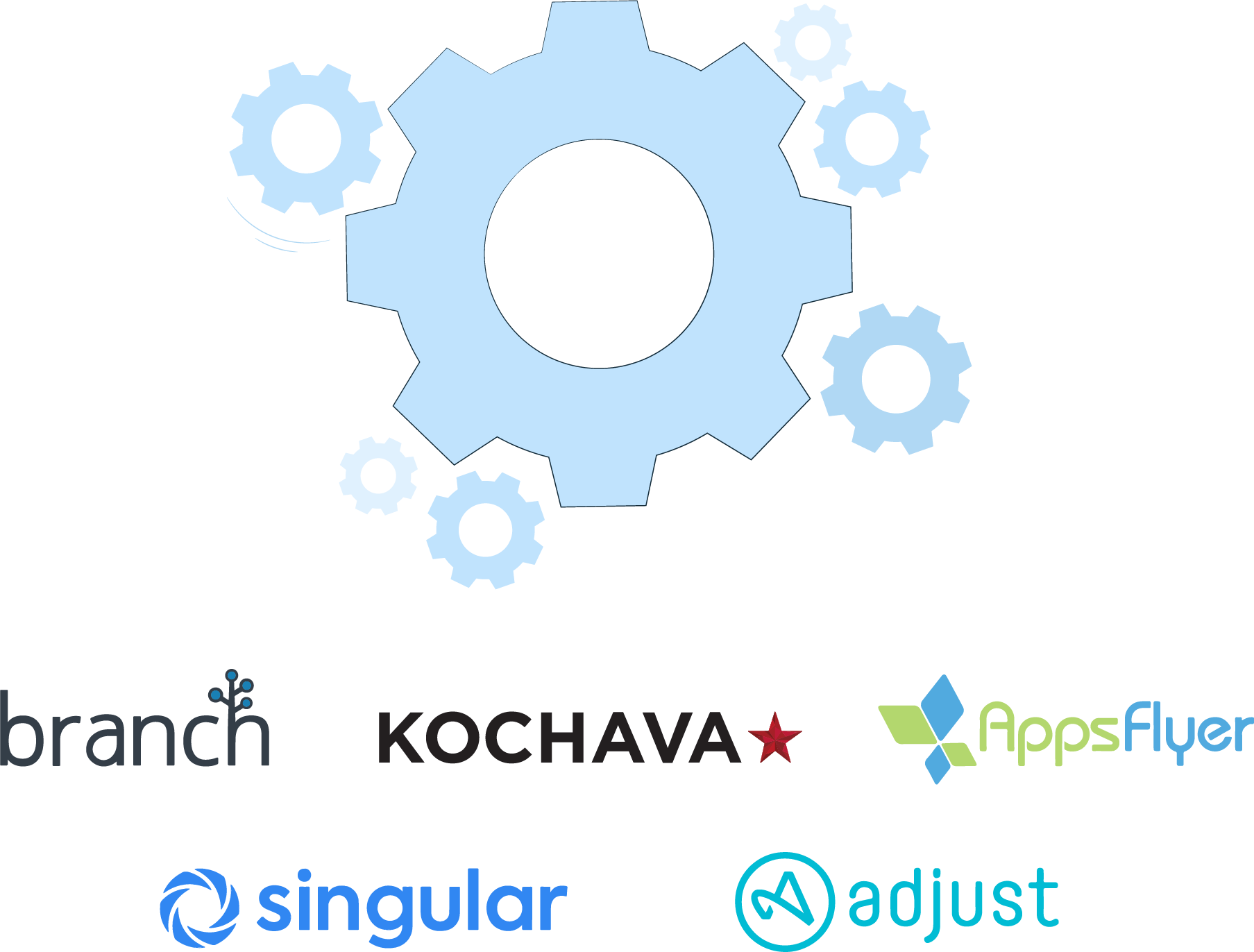Gain clarity into when and if you need an MMP for your mobile app
Mobile measurement partners (MMPs) were created as an independent third-party platform to track, organize, and visualize mobile app data to give marketers a unified view of campaign performance across channels and partners.
MMPs are important because they:
- Enable an advertiser to integrate one software development kit (SDK) into their mobile app rather than the advertiser integrating a new SDK for every ad network or publisher they want to run a campaign with.
- Provide unbiased and independent attribution across an advertiser’s omni-channel media mix, acting as a single source of truth for advertisers on which partners and campaigns are driving quality conversions.
MMPs are valuable allies who can help guide you through the complicated tech ecosystem. Deciding when you need one and which one to choose can be an overwhelming task. This blog is here to help guide you in making those important decisions.

Who works with an MMP?
Many stakeholders in the mobile advertising industry work and/or partner with an MMP. They can include the following list:
- Mobile advertisers and marketers running mobile advertising campaigns across different channels and platforms rely on MMPs to accurately track and measure the performance of their campaigns. They need an MMP to understand the effectiveness of their marketing efforts, optimize their strategies, and allocate budgets based on data-driven insights. Without an MMP, marketers would have a very fragmented view of performance across the different reporting dashboards of each partner. Getting a sense of the bigger picture wouldn’t be possible.
- App developers and publishers require an MMP to track user acquisition, measure app installs, and attribute app events to specific marketing campaigns. They rely on MMPs to gain insights into user behavior, engagement metrics, and monetization performance, which helps them optimize their apps, improve user experiences, and drive revenue.
- Ad networks and ad exchanges partner with MMPs to provide advertisers and marketers with accurate measurement and attribution capabilities on their ad inventory. They integrate with MMPs to track ad impressions and/or clicks, and independently attribute the conversions that result. The attributed conversion outcomes are syndicated back to these partners for campaign optimization. Essentially, the MMP enables them to demonstrate the value and performance of their advertising inventory.
- Agencies and media buyers partner with MMPs to gain visibility into campaign performance across various channels and platforms. They rely on MMPs to provide them with accurate and granular data to optimize media buying strategies, allocate budgets effectively, and demonstrate the success of their campaigns to clients.
All of these interested parties can benefit from partnering with an MMP. These partnerships enable them to measure, analyze, and optimize their mobile advertising efforts, ultimately driving better results and return on investment (ROI).
When do I need an MMP?
There is no exact threshold that needs to be reached before utilizing an MMP. For any of the stakeholders mentioned above, deciding when to use an MMP can depend on a variety of factors. When determining if you need an MMP, consider the following:
Your budget
The first thing you need to establish is your marketing and operational budget for your mobile app. Do you have room in your budget for an MMP and, if so, how much can you allocate to this service?
The cost of an MMP can vary depending on the scope of services required, the scale of the ad campaign(s), and other tools or features the MMP might provide. Most MMPs provide different pricing models that are structured based on factors such as volume of ad spend, attributed conversions, number of monthly active users, levels of support, etc.
Even if you only have a small budget for an MMP, it could be beneficial to start using one at a low cost so that you have room for growth. If you can, incorporate with an MMP early so that you can gain at least some valuable insights into your ad campaigns. These insights can make it easier for you to optimize your campaigns and save you money on future efforts.
Free App Analytics®, powered by Kochava is free to use and includes up to 10k attributed conversions per month. Learn more here.
Your media mix
When you’re just starting out, you might only be running campaigns on one or two channel partners (e.g., Facebook, Instagram, Google, etc). During this time, it might not be necessary to use an MMP because you’re probably using the platform of whichever partner you’re running with to view campaign activity and data.
However, once you start to grow your media mix and spend with other partners, you should seriously consider an MMP. In this situation, an MMP serves as a centralized platform allowing you to collect, measure, and analyze all of your ad campaign data across every partner, channel, and platform. The unified view of your campaign performance enables you to compare and evaluate the effectiveness of different advertising sources in one place, becoming the single source of truth. It should be noted that some media partners (eg, TikTok) require that you use an MMP to advertise on their platform.
Overall, leveraging an MMP when working with multiple advertising partners enhances your ability to track, measure, optimize, and make informed decisions based on reliable data. It simplifies the management of your advertising efforts, improves campaign performance, and maximizes the value you derive from your advertising partnerships.
The app’s popularity
Once you expand your media mix, your app’s visibility and, hopefully, its popularity will expand too. If your app is doing well and you are gaining more downloads, daily active users (DAU), monthly active users (MAU) and in-app event activity, it’s probably time to employ an MMP.
An MMP will provide you with precise and reliable measurement of your app’s performance metrics, such as installs, engagements, and conversions. It also employs advanced attribution and measurement to accurately attribute these actions to specific marketing channels, campaigns, and partners. This data helps you understand the effectiveness of your marketing strategies and make informed decisions to optimize your campaigns further.
All of this data can be used for in-depth analysis and reporting, offering insights into user behavior, user acquisition channels, conversion funnels, and user lifetime value. These insights help you understand your audience better, identify user trends, and optimize your marketing strategies accordingly. The advanced analytics provided by an MMP can uncover valuable data points that contribute to the growth and success of your app.
Outside factors/requirements
Not only do MMPs help measure and analyze your app data, they also are vital in the ever-changing ad tech privacy and regulation landscape. MMPs are well-versed in privacy regulations and industry standards and can be helpful in guiding and facilitating your compliance efforts. They help ensure that your data collection and measurement practices align with different policies across platforms (iOS and Android), marketing partners (Facebook, Google, Snap, etc.), and government regulations (California Consumer Privacy Act, General Data Protection Regulation in the EU, and more). An MMP also helps you adapt to new privacy-enhancing technologies like Apple’s SKAdNetwork on iOS and Google’s Privacy Sandbox for Android.
By working with an MMP, you can navigate the vast web of privacy requirements more effectively and efficiently.
How do I choose an MMP?
As you incorporate more partners and channels into your media mix and your user base grows, it will be important to employ an MMP. There are a handful of leading MMPs to choose from. Once you determine your budget and your needs, do research into the MMPs that will best fit your needs.
For more information and help choosing an MMP, download this free request for information (RFI) template to guide you in your MMP research.
Want to learn more about Kochava’s MMP solutions? Take the next step here.



